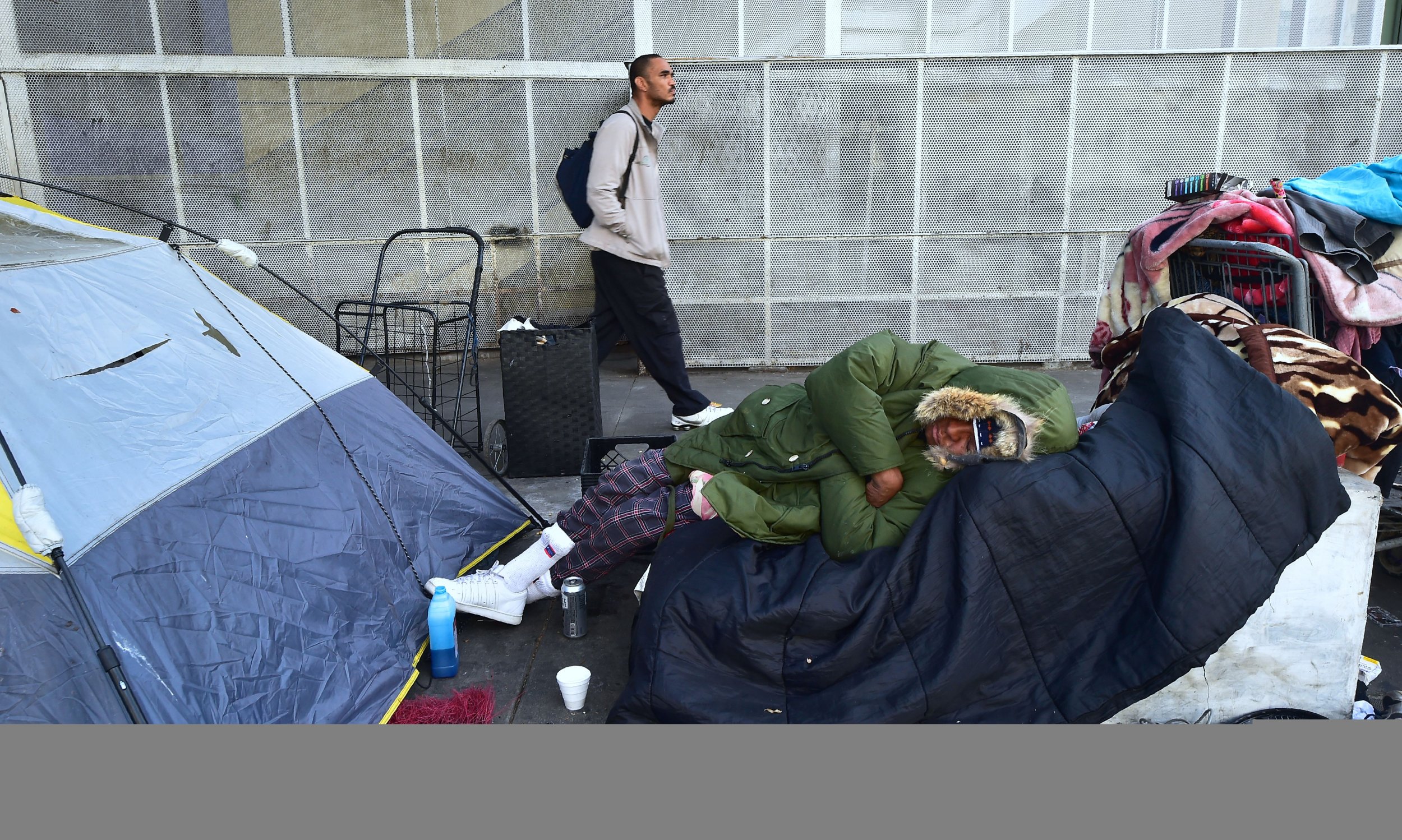Feeding the Homeless in California Against the Law
Why It's Illegal to Feed the Homeless in Cities Across America

Volunteers made headlines Sunday when 12 of them were charged with misdemeanor offenses after feeding homeless people in El Cajon, California, but the ban against feeding the homeless is not unique to the city. Dozens across the United States have similar policies that ban food-sharing in public places.
After the charges in El Cajon, activists and attorneys said Monday that they would file a lawsuit against the city regarding the ban. Leaders called the policy unconstitutional and discriminatory, according to The San Diego Union-Tribune. Similar stories have been reported across the nation. In December 2017, Adelen McLean was issued a ticket for feeding the homeless in Atlanta's Hurt Park, and in January 2017, seven people in Tampa were arrested for feeding the homeless without a permit.
One volunteer in El Cajon, Ever Parmley, just 14 years old, told NBC 7 on Sunday, "I was passing out food and this guy was like, 'Can you step aside please.'"
Lawmakers who back food-sharing bans say that sharing food can lead to the spread of Hepatitis A among the homeless, but homeless advocates say that food-sharing bans are a trend toward criminalizing homelessness.
"Of course sanitation is important, and of course public health is important," Maria Foscarinis, the founder and executive director of the National Law Center on Homelessness & Poverty (NLCHP) told Newsweek, "but these issues can be addressed without banning sharing food with people who are hungry and people who are impoverished."
Foscarinis told Newsweek that NLCHP has seen an increase in laws criminalizing homelessness. "This will continue, especially with the recent beck-pedaling of the federal Justice Department," she said.
In December 2017, Attorney General Jeff Sessions and the U.S. Department of Justice pulled back on an Obama-era guidance issued to state and local courts that advocated against imposing fines and fees on poor people.
Hepatitis A outbreaks in Los Angeles, San Diego and Santa Cruz plagued the cities' homeless populations in 2017 and killed about 20 homeless people. The rare and contagious liver infection that can result from a lack of safe water, and poor sanitation and hygiene has since spread east to Salt Lake City.
The Utah outbreak has been linked to homeless people who moved to the city from centers in San Diego, according to a Thursday report from the Associated Press. The law to ban food-sharing in public spaces like city parks in El Cajon was put in place last October.
If #MLK were alive today, he'd stand with those who share food with those experiencing homelessness and against those who make it a crime. https://t.co/0xtNHo980B
— ACLU of San Diego & Imperial Counties (@sdACLU) January 16, 2018
"What we're saying is feeding them at city parks is a bad idea given the situation that we're in with the Hepatitis A outbreak, and the fact that it makes the place completely messy afterward," El Cajon Councilmember Ben Kalasho told NBC 7 in November. Between 2013 and 2015, 26 cities passed food-sharing bans, according to reports from the National Coalition for the Homeless.
"Many communities will cite a desire to ensure that food that is shared is prepared according to certain food preparation standards, but there is no documented cases of food poisoning coming from food that is shared with hungry people in public places," National Coalition for the Homeless Interim Director Megan Hustings told Newsweek.
A 2017 report from NLCHP called "Housing Not Handcuffs" surveyed and tracked 187 cities since 2006, and found that 6 percent of cities banned food-sharing in public spaces. About 47 percent of those cities banned sitting or sleeping in public, and many had laws against sleeping and camping in public spaces. Homeless people can be fined or even incarcerated for violating these laws.
schlunketheyeaterve85.blogspot.com
Source: https://www.newsweek.com/illegal-feed-criminalizing-homeless-america-782861